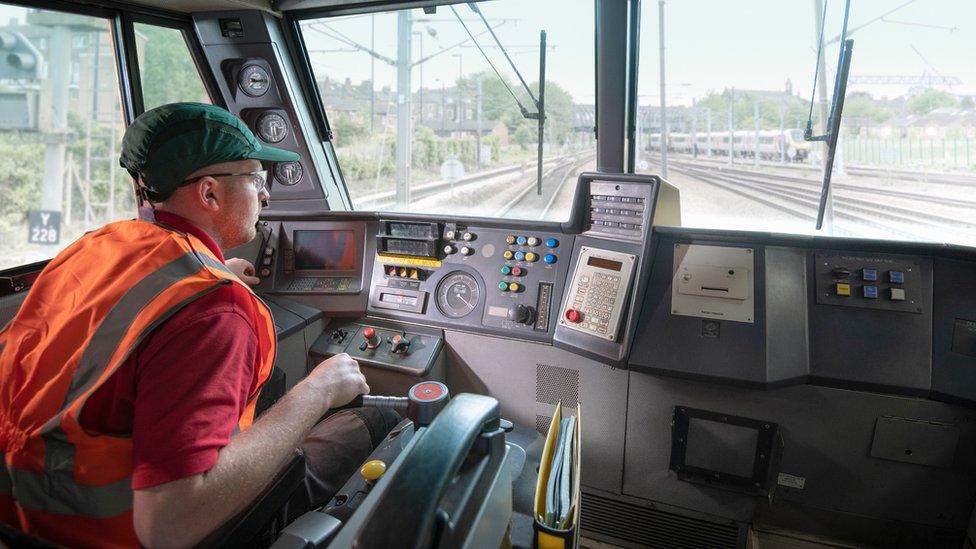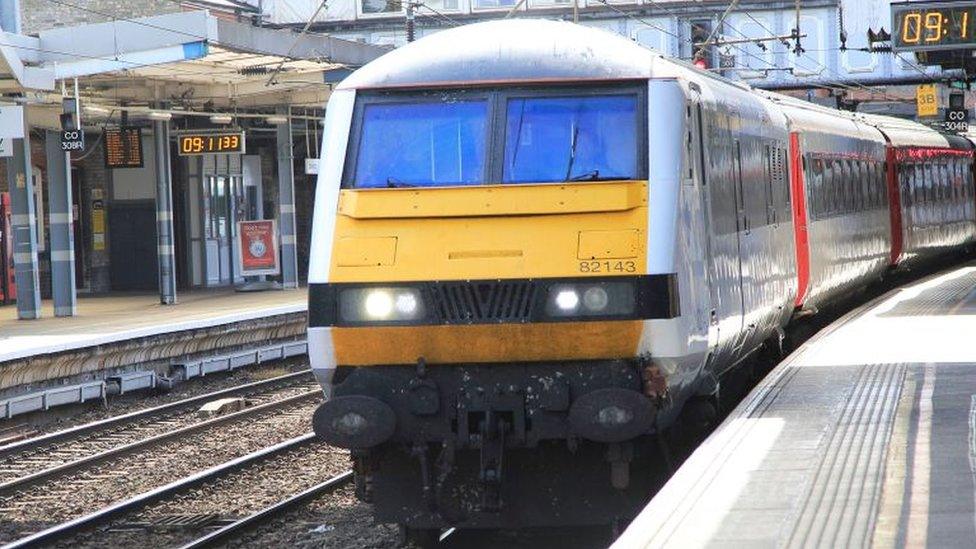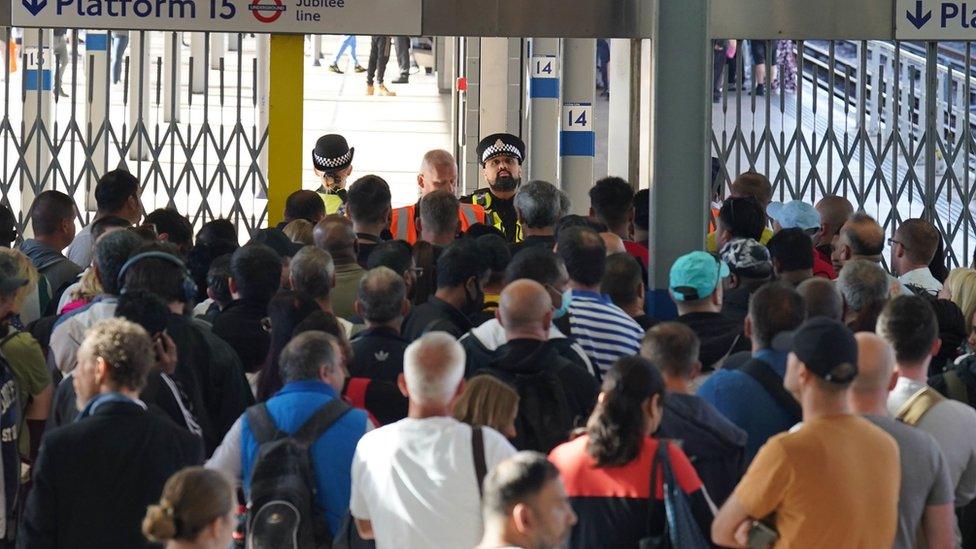Train drivers vote for rail strikes over pay
- Published

Train drivers have voted to go on strike threatening further travel disruption.
Members of the drivers' union Aslef at eight train companies overwhelmingly voted to walk out over pay.
Hundreds of Transport Salaried Staffs Association (TSSA) members at Southeastern have also voted for strikes, the union has announced.
It comes after passengers faced major disruption in June due to separate strike action by 40,000 rail workers.
Members of the RMT union at 13 train companies and Network Rail walked out in what was the biggest rail strike in 30 years. Talks between the RMT union and rail operators resumed today.
The Aslef ballot results are among drivers at Chiltern, GWR, LNER, London Overground, Northern, Southeastern, TransPennine and West Midlands.
Mick Whelan, general secretary of Aslef said strikes "are always the last resort" but he said that many union members "have not had a pay rise since 2019".
"We want an increase in line with the cost of living - we want to be able to buy, in 2022, what we could buy in 2021," he said.
Mr Whelan said it was not too late for companies or the government to resolve the situation and avoid strikes. "We're happy to talk to anyone to do a deal and make sure Britain's railways aren't disrupted," he said.
'Further misery'
Transport Secretary Grant Shapps, who has launched a bid to be the next Conservative party leader and prime minister, tweeted that it wasn't "fair for train drivers to hurt those on lower wages with more walkouts".
The Department for Transport urged the union to reconsider. It said train drivers earn, on average, just under £60,000 per year - more than twice the UK median salary.
A spokesperson said: "It is very disappointing that, rather than commit to serious dialogue with the industry, Aslef are first seeking to cause further misery to passengers by joining others in disrupting the rail network."
A Rail Delivery Group spokesperson said: "Instead of causing further disruption to passengers and businesses, we urge the Aslef leadership to continue talks."
Allow X content?
This article contains content provided by X. We ask for your permission before anything is loaded, as they may be using cookies and other technologies. You may want to read X’s cookie policy, external and privacy policy, external before accepting. To view this content choose ‘accept and continue’.
Dates of the proposed strike action by Aslef members have not yet been announced but unions must give 14 days notice.
The announcement has led to fears of disruption to the Commonwealth Games in Birmingham which is expected to attract about one million tourists between 28 July and 8 August.
Meanwhile, Aslef train drivers working for ScotRail have voted to accept a 5% pay increase, ending the dispute that had led to a reduced timetable for almost two months.
The TSSA said its members at Southeastern had voted for strikes and other forms of industrial action over pay, job security and conditions.
It said a ballot result from members working at Network Rail was expected soon. The union said it is not naming dates for any industrial action today, and that it will now consider the next steps with workplace reps.
General secretary Manuel Cortes said: "The results demonstrate that our members are utterly determined to fight for their pay, jobs and conditions."
- Published9 June 2022

- Published8 July 2022
